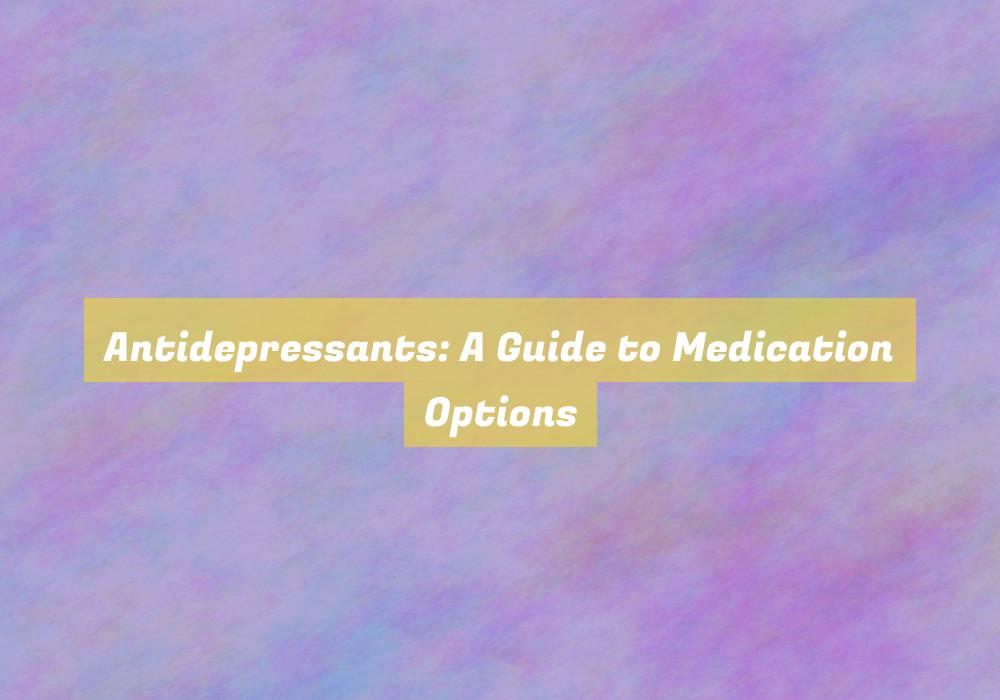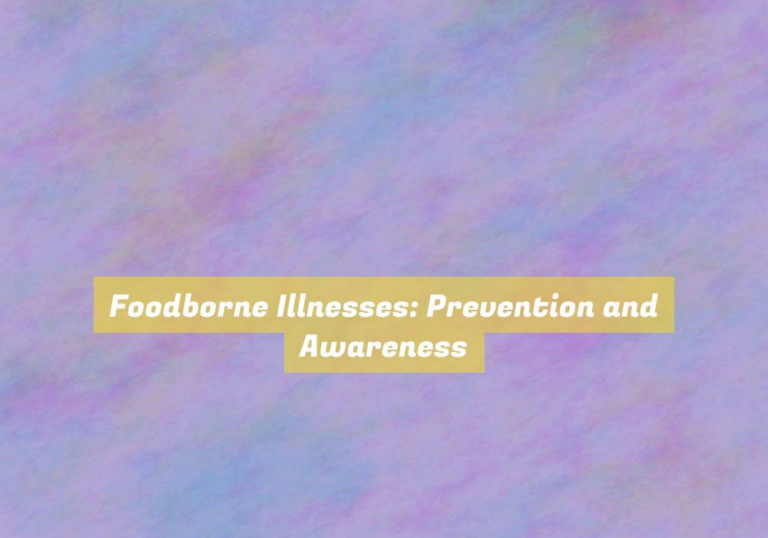Antidepressants: A Guide to Medication Options
If youG??ve ever experienced a lack of interest in activities you once enjoyed, constant feelings of sadness, or changes in appetite and sleep patterns, you may have considered seeking help for depression. You may have even discussed the option of antidepressant medication with your healthcare provider.
With numerous options available, it can be overwhelming to navigate the world of antidepressants. Understanding the different classes of antidepressants and their potential side effects can help you make an informed decision about which medication may be right for you.
Whether youG??re just starting to explore antidepressant options or considering a switch in medication, this guide will provide you with valuable insights to make the best choice for your mental health journey.
Understanding Antidepressant Classes
Understanding the different classes of antidepressants can help you and your healthcare provider determine the most suitable treatment for your condition.
There are several types of antidepressants, each working in distinct ways to alleviate symptoms of depression.
Selective serotonin reuptake inhibitors (SSRIs) are one of the most commonly prescribed classes. They work by increasing the levels of serotonin in the brain, a neurotransmitter that affects mood.
Another class, serotonin and norepinephrine reuptake inhibitors (SNRIs), also target serotonin but additionally impact norepinephrine levels.
Tricyclic antidepressants (TCAs) and monoamine oxidase inhibitors (MAOIs) are less commonly prescribed due to their potential side effects, but they can be effective in certain cases.
Atypical antidepressants, such as bupropion and mirtazapine, have different mechanisms of action compared to the other classes.
Exploring Potential Side Effects
Potential side effects of antidepressants can vary widely among individuals. ItG??s important to be aware of the potential side effects when starting a new medication. Common side effects include nausea, headache, dizziness, and drowsiness. These symptoms often subside as your body adjusts to the medication, but if they persist or become severe, itG??s essential to consult your healthcare provider.
In addition to the common side effects, some antidepressants may cause sexual dysfunction, weight gain, or insomnia. ItG??s crucial to communicate openly with your doctor about any side effects you experience, as they may be able to adjust your dosage or switch you to a different medication.
More serious but less common side effects of antidepressants can include an increase in suicidal thoughts, especially in young adults. ItG??s essential to monitor your mood and behavior closely, especially when first starting a new medication. If you experience a sudden worsening of depression, agitation, or thoughts of self-harm, seek immediate medical attention.
Understanding the potential side effects of antidepressants can help you make informed decisions about your treatment. Always consult with your healthcare provider before making any changes to your medication regimen.
Factors for Medication Selection
When choosing the right antidepressant for you, your healthcare provider will consider various factors such as your medical history, existing health conditions, and any potential drug interactions.
Your medical history plays a crucial role in determining which antidepressant is suitable for you. For instance, certain antidepressants may not be recommended if you have a history of seizures or are at risk of developing them.
Additionally, existing health conditions such as heart disease or liver problems may influence the choice of antidepressant due to potential interactions or effects on these conditions.
Furthermore, itG??s essential to consider any potential drug interactions with other medications you may be taking. Your healthcare provider will assess how the antidepressant may interact with other drugs to ensure your safety and the effectiveness of the treatment.
Switching Antidepressant Medications
If youG??re considering changing your antidepressant medication, consult with your healthcare provider to discuss the best approach for your individual needs and circumstances. Switching antidepressant medications should always be done under the guidance of a healthcare professional to ensure a smooth transition and minimize potential withdrawal effects or adverse reactions.
There are various reasons why you might consider switching antidepressants. It could be due to the lack of improvement in your symptoms, intolerable side effects, or the need for a medication that better targets specific symptoms. Your healthcare provider will evaluate your current medication, medical history, and treatment goals to determine the most appropriate medication switch for you.
When switching antidepressants, itG??s important to follow your healthcare providerG??s instructions carefully. Depending on the medications involved, you may need to taper off the current antidepressant while gradually introducing the new one to minimize discontinuation symptoms and ensure the new medicationG??s effectiveness.
Close monitoring is crucial during the transition period to evaluate your response to the new medication and address any emerging side effects. Open communication with your healthcare provider will help ensure a successful transition to a new antidepressant that better suits your individual needs.
Conclusion
In conclusion, when it comes to antidepressant medication options, itG??s important to understand the different classes available, potential side effects, and factors for selecting the right medication for you.
ItG??s also important to communicate openly with your healthcare provider about any concerns or changes in medication.
With the right information and support, finding the right antidepressant medication can make a positive difference in managing your mental health.







You’ve brought up such an important topic that many of us can relate to on different levels. Navigating the options for antidepressants can indeed feel daunting, especially with the variety of classes available and their potential side effects. Personally, when I first explored this path, I found that educating myself about not only the medications but also complementary therapies, like cognitive behavioral therapy (CBT), was invaluable.